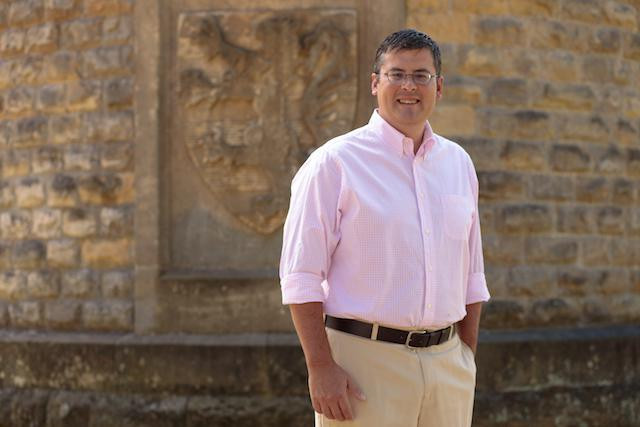Given the lack of uniformity across the US, Bakker has his work cut out for him. Voting across US states—even across counties within those states—can vary substantially and, in some cases, voters are left bewildered about instructions.
Currently 19 US states (Arkansas, Connecticut, Georgia, Idaho, Illinois, Kentucky, Maryland, Michigan, Minnesota, New Hampshire, New York, Ohio, Pennsylvania, South Dakota, Tennessee, Texas, Virginia, Vermont and Wisconsin) require voters abroad to mail in their physical ballots.
“For those 19 states, we recommend returning the ballot immediately,” Bakker says. States should have sent them out by 19 September so “if you don’t have it, that means there is a problem.”
And, while he adds “if you can afford it, use a courier”, the local US Embassy is also accepting physical ballot dropoffs until 13 October which are then flown by military plane to Washington, D.C., where they are then sent out farther to individual locations.
Other states, on the other hand, do allow for either fax or e-voting, although Bakker emphasises that in the case of the latter “it’s not voting by email but actually delivering an image”. The US department of defence runs an email-to-fax bridge via fvap.gov for those who do not have a fax machine.
Less-than-clear instructions, naked ballots

The ballot (example from Sioux Falls, South Dakota shown here) might be straightforward but the instructions aren't always, says Bakker. Image: Shutterstock
“Luxembourg doesn’t have it the hardest,” the former DA Luxembourg chair admits. “I talk to people in Rwanda, South Africa, where the only option is to ensure they’re using couriers, which functions as a modern day poll tax.” And, while he adds that the DA organisation “thinks this is wrong”, he considers the 2020 presidential elections one in which voters should be prepared to face “all possible barriers”.
Having the choice for those abroad to vote electronically is something “we would like to see codified into law”, but for now the hundreds of volunteers are doing what they can to interpret the various instructions across different counties. There have already been reports of confusing instructions, including, for example, a county requiring that the ballot be sent with an “’affidavit of delivery’—they mention it as if you need to include it, but it doesn’t make sense, and no one knows what it means,” per Bakker.
His other concerns include the fact that “a lot of election officials are under instructions to check signatures extra closely”, not to mention the issue of “naked ballots” in Pennsylvania which could see thousands of votes rejected, as NPR reports.
“Pivoting” during pandemic
Bakker states their estimates count some 9m Americans overseas worldwide, around 6.5-7m of whom are eligible to vote. But those who actually do vote “never cracks 10%,” he says, “so we have our work cut out.”
Hundreds of volunteers, however, started to “come out of the woodwork” early this year. Bakker says the team started “pivoting in March”, seeing the start of the pandemic and how it might cause more hiccups in the voting process. Normally, the Democrats Abroad wouldn’t start its efforts that hard until September, but Bakker says he saw “huge volumes in April-June to inform [their base of] members and give them confidence and build up a volunteer base”. He thinks the early calls helped since people were lacking human contact.
Despite “trust eroded at so many different points”, Bakker says he and other volunteers are available to answer questions about voting from abroad (no matter political party affiliation) via live, one-on-one assistance, email, even in person in certain cases.
For more information, visit democratsabroad.org/gva .
